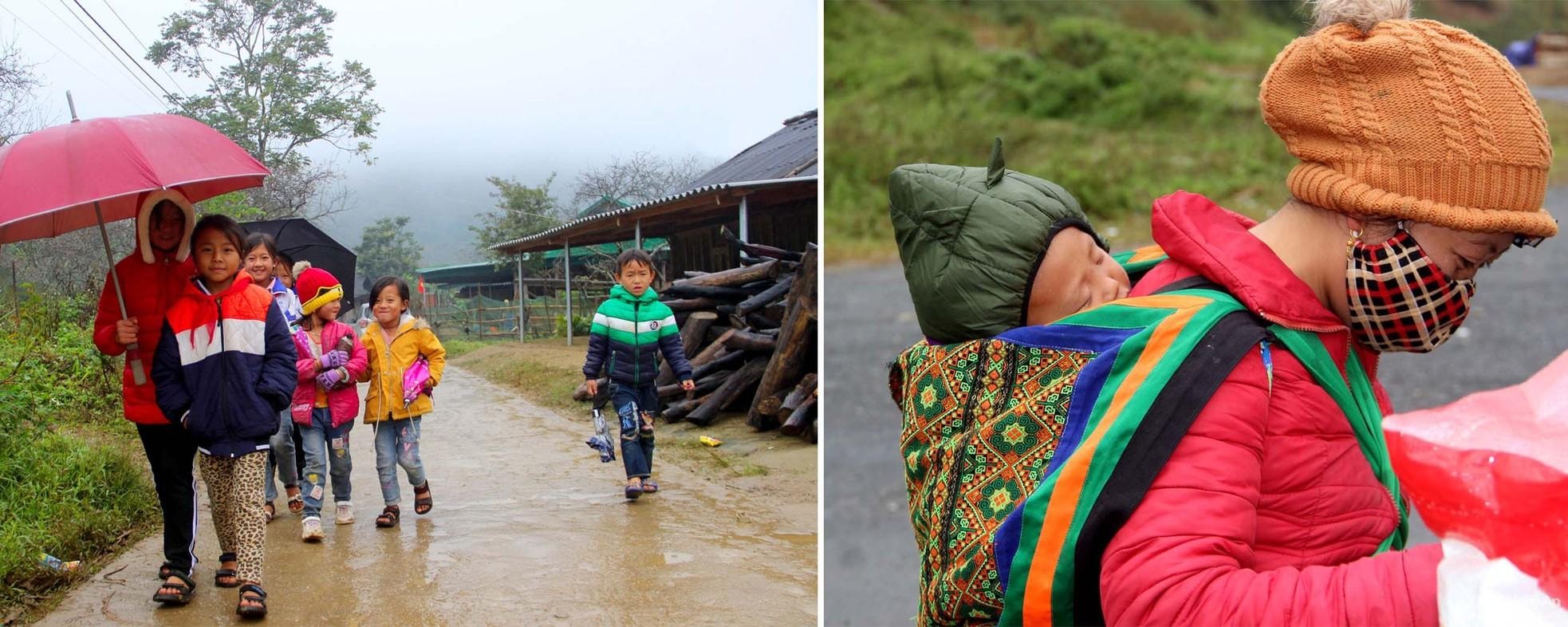Nghe An directs response to forecast of heavy rain, floods, severe cold
(Baonghean.vn) - With the forecast that from the night of November 30, the Central provinces will have heavy rain and it may last for a long time, Nghe An has issued an official dispatch directing sectors and localities to focus on response.
According to the National Center for Hydro-Meteorological Forecasting, from November 30, due to the influence of strong cold air, the North Central region will have dry weather.cold,temperature from 12-150C.
In particular, from the night of November 30 to December 3, the Central region will have rain from 150-250mm/period, in some places over 300mm/period and it may continue. From November 30, the Gulf of Tonkin and the North East Sea, including the waters of the Hoang Sa archipelago, the wind will change to the Northeast direction, gradually increasing to level 7, gusting to level 9; waves 2-6m high, rough seas.
 |
In previous years, Nghe An suffered from cold and rainy spells that greatly affected all aspects of life, especially in mountainous districts like Ky Son. Photo: Quang An |
To proactively respond to natural disasters, the Standing Office of the Provincial Steering Committee for Natural Disaster Prevention, Search and Rescue and Civil Defense requests the Steering Committees for Natural Disaster Prevention, Search and Rescue of districts, cities, towns and relevant agencies and units to closely monitor warning and forecast bulletins; thereby promptly and regularly informing and guiding authorities at all levels and people to proactively prevent floods, severe cold, whirlwinds, lightning, hail and strong gusts of wind.
At the same time, take measures to prevent floods, especially flash floods and landslides; deploy shock forces to inspect and review low-lying residential areas at high risk of floods, flash floods, landslides, and isolated inundation; proactively evacuate people when situations arise.
Check, review, and prepare plans to ensure the safety of reservoirs and downstream areas, especially small hydroelectric reservoirs, important irrigation reservoirs, and reservoirs that are full of water.
Mountainous districts have implemented measures to prevent severe cold and frost to ensure safety for people, especially the elderly, children and students. Absolutely do not use honeycomb coal stoves to heat in closed rooms to avoid unfortunate incidents. Proactively implement safety measures for crops and livestock, especially in highland areas.
In particular, coastal districts and towns must closely monitor warning bulletins, forecasts and developments of strong winds at sea; notify captains and owners of vehicles and vessels operating at sea to proactively prevent and have appropriate production plans, ensuring safety of people and property; maintain communication to promptly handle bad situations that may occur.
Strengthen information and communication work on weather developments and skills to prevent floods, flash floods, and landslides so that people, authorities at all levels, and functional forces can proactively prevent and minimize damage caused by natural disasters.
Implement measures to protect livestock from the cold such as cleaning, strengthening barns, covering to keep warm, proactively stocking food to ensure prevention of hunger and cold; preventing and controlling diseases for livestock, poultry, aquatic products...

